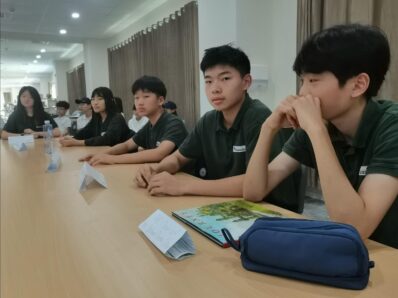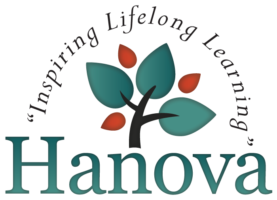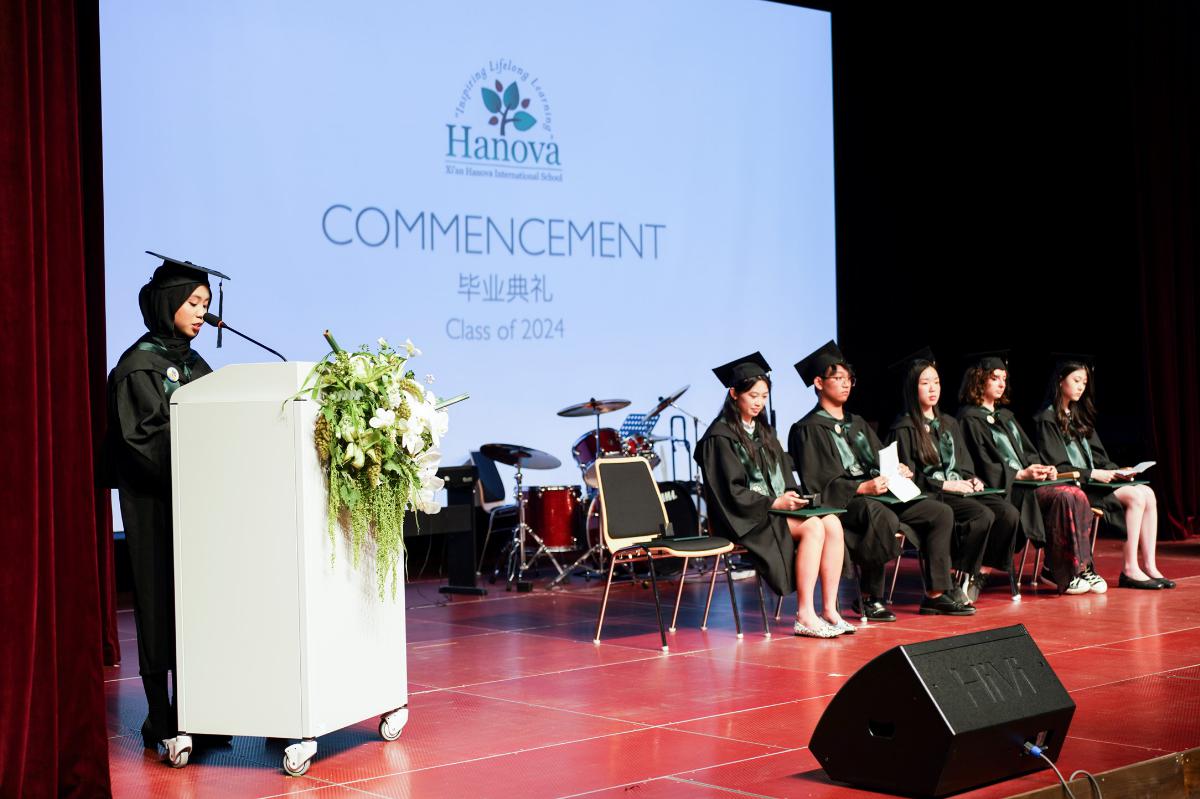 Congratulations to Class of 2024 - written by Ms Sharon Zhu, DP Coordinator. “I came here three years ago in 2021, knowing about three languages, and Mandarin was not one of them. So, I struggled a lot communicating with the locals, but I believe I’ve gotten better now that I’m leaving. As I said before, I was a trilingual student, and today, I’m graduating with proficiency in five languages. I believe that Hanova has taught me to be confident in myself in order to keep improving and trying new things.”
Congratulations to Class of 2024 - written by Ms Sharon Zhu, DP Coordinator. “I came here three years ago in 2021, knowing about three languages, and Mandarin was not one of them. So, I struggled a lot communicating with the locals, but I believe I’ve gotten better now that I’m leaving. As I said before, I was a trilingual student, and today, I’m graduating with proficiency in five languages. I believe that Hanova has taught me to be confident in myself in order to keep improving and trying new things.”
This is Liyana from the class of 2024 speaking in her graduation speech last Friday, May 24th, during the commencement ceremony. Six graduates spoke from their hearts, expressing gratitude to their teachers, parents, peers, and to Hanova. Their speeches were a testimony to the education they received here at Hanova, which cultivates them to be outstanding learners with wisdom and socially responsible global citizens.
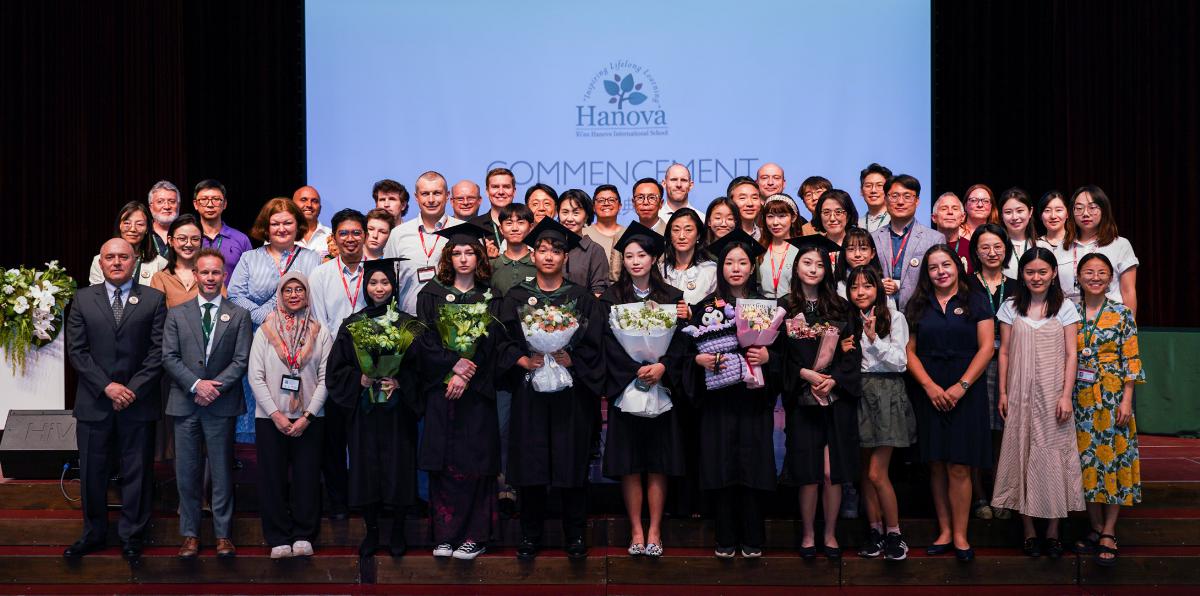 The graduation party followed in the school balcony in the evening. We celebrated the success of the class of 2024 with an abundance of joy, waves of laughter, and beautiful music performed by our MYP and DP students. Families of the graduates and school faculty gathered together to send off the graduates with our best wishes and our love in heart.
The graduation party followed in the school balcony in the evening. We celebrated the success of the class of 2024 with an abundance of joy, waves of laughter, and beautiful music performed by our MYP and DP students. Families of the graduates and school faculty gathered together to send off the graduates with our best wishes and our love in heart.
We are incredibly proud of the hard work that the class of 2024 put forth leading up to this milestone, but credit must also be given to our exceptional teachers and supportive parents who have played an significant role in their success.
Thank you for making us proud, and we wish you all the best in your future endeavors, class of 2024!
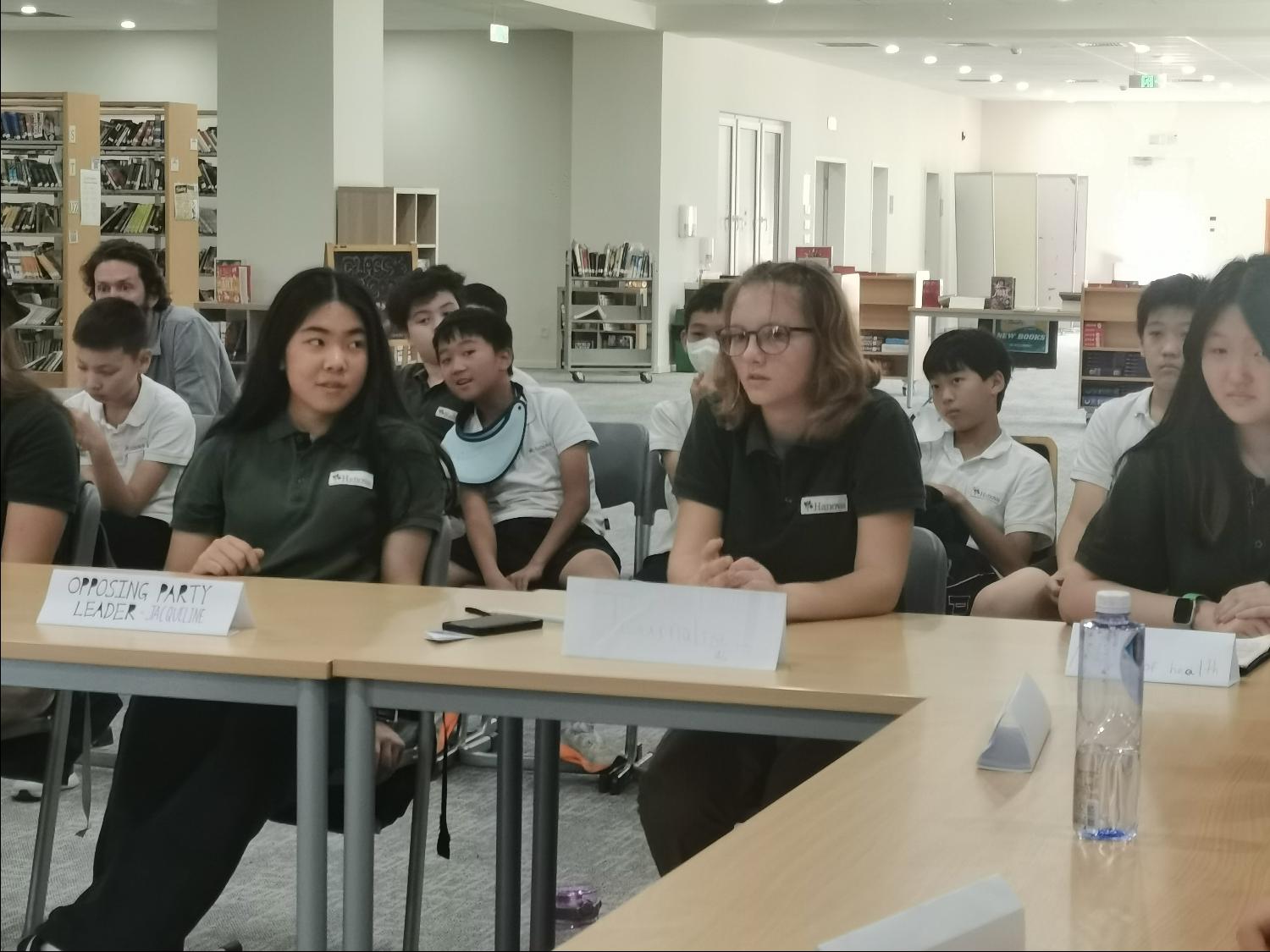 Approaches to teaching and learning in science: Scriptwriting and Role Play in Drama - written by Mr Muhittin Gürbüz, MYP & DP Science, Physics. Teaching students about the importance of protecting the environment involves instilling respect for all living and non-living things. It's crucial to create an awareness of the intricate web of life, where plants play a vital role in forming flowers, pollination, fertilisation, and forming seeds and fruits. We also delve into how other living organisms, as consumers, have adapted to this system that has been in place for millions of years. Lastly, we explore the impact of human activities on this delicate balance, such as overpopulation, pollution, selective breeding, and habitat destruction, highlighting our shared responsibility in maintaining this ecosystem.
Approaches to teaching and learning in science: Scriptwriting and Role Play in Drama - written by Mr Muhittin Gürbüz, MYP & DP Science, Physics. Teaching students about the importance of protecting the environment involves instilling respect for all living and non-living things. It's crucial to create an awareness of the intricate web of life, where plants play a vital role in forming flowers, pollination, fertilisation, and forming seeds and fruits. We also delve into how other living organisms, as consumers, have adapted to this system that has been in place for millions of years. Lastly, we explore the impact of human activities on this delicate balance, such as overpopulation, pollution, selective breeding, and habitat destruction, highlighting our shared responsibility in maintaining this ecosystem.
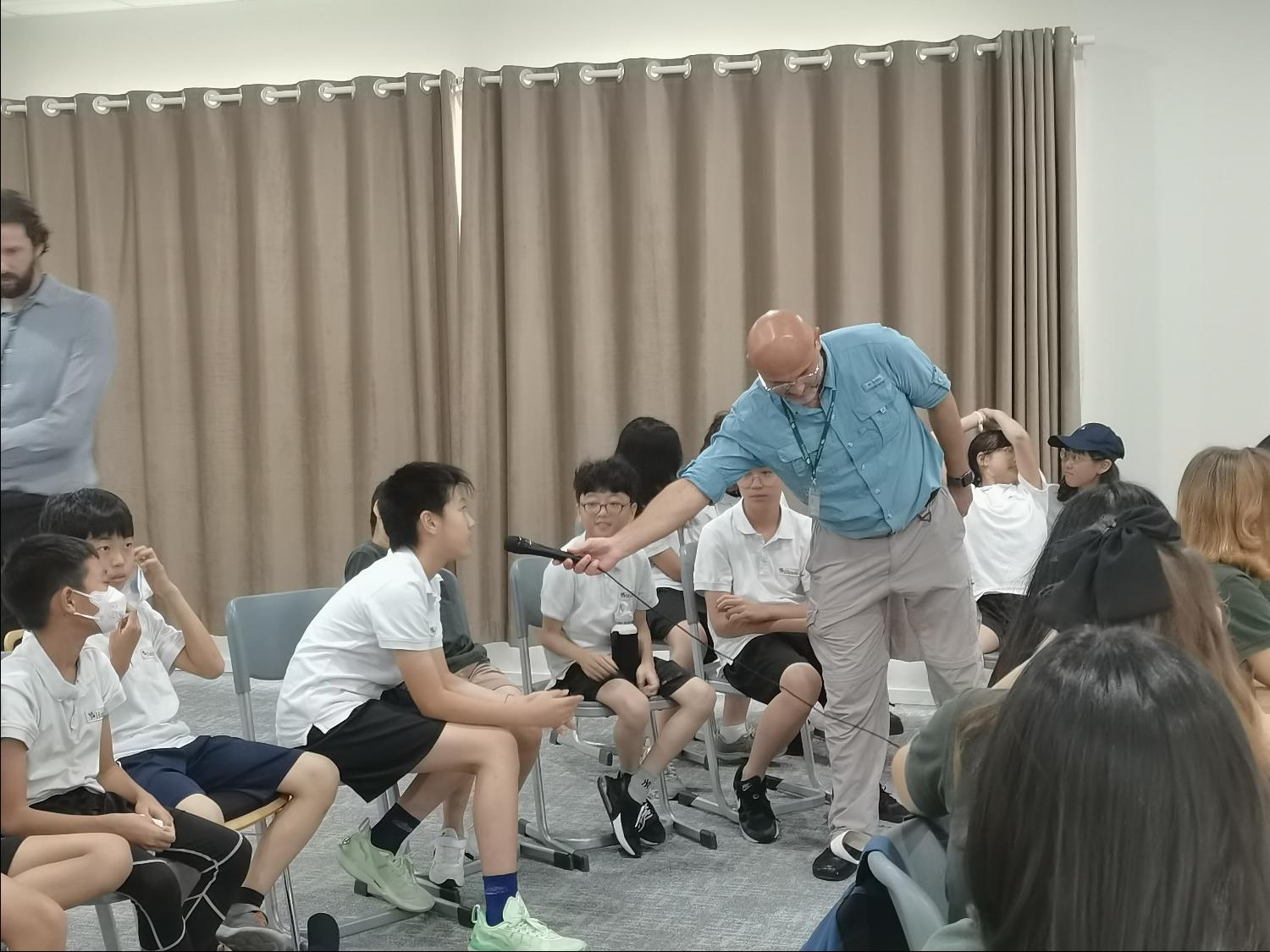 To avoid the students getting bored with popular but theoretical topics, I decided to use script writing and role-play techniques in Drama with the support of our Drama Teacher—Mr. Els, Jan Ferdinand—to develop an inquiry-based curriculum that is also developed in a local and global context and focused on effective teamwork and collaboration.
To avoid the students getting bored with popular but theoretical topics, I decided to use script writing and role-play techniques in Drama with the support of our Drama Teacher—Mr. Els, Jan Ferdinand—to develop an inquiry-based curriculum that is also developed in a local and global context and focused on effective teamwork and collaboration.
Scenario:
Madagascar is the world’s 10th poorest country. To develop a 10-year program about sustainable development for his country, Prime Minister Martin Christian NTSAY invited the best experts, the chairs of different community volunteer foundations in modern countries, and the best scientists and politicians from developed countries to an open panel that will last three days.
Casting:
- Prime Minister_ Martin
- MINISTER OF ENVIRONMENT AND URBANIZATION_ Pei Xin
- MINISTER OF AGRICULTURE AND FOREST_ Gaowin
- MINISTER OF HEALTH_ Allison
- MINISTER OF ENERGY AND NATURAL RESOURCES_ James
- OPPOSING PARTY LEADER_ Jacqueline
- THE CHAIR OF NATIONAL FARMERS UNION_ Aster
- THE CHAIR OF YOUTH UNION FEDERATION_ Luna
- THE CHAIR OF INDUSTRY-BUSINESS ASSOCIATIONS_ John
- THE CHAIR OF COMMUNITY VOLUNTEER FOUNDATION_ Nadine
- THE CHAIR OF VOLUNTEERS OF ENVIRONMENT_ Yeseol
- SCIENTIST- PROFESSOR OF FOREST ECOLOGY _ Judie
- SCIENTIST- PROFESSOR OF FRESHWATER ECOLOGY_ Leah
- A JOURNALIST_ Heila
To prepare for their role, the students had to complete their summative Criterion-D task. They also received a brief ‘scriptwriting’ introduction from Mr. Els. Collaboratively, they spent more than two weeks completing the script.
After a few rehearsals, last thursday, they played their own script in front of the Year 6 students, guided by Mr. Felice, and answered their questions at the end. This activity was another opportunity for some students to develop mental management skills, such as practising strategies to reduce stress and anxiety and developing self-esteem in front of the public.
Well done, Year 9 students. You did a great job, and I appreciate your effort.
Mr. MG
Wild Adventure: Reception Classes Explore Habitats at Shaanxi Nature Museum - written by Ms Bridget Custer, Reception Teacher. On Wednesday, May 22, Reception classes visited the Shaanxi Nature Museum to celebrate our Living Things Unit of Inquiry . For many, this was also their first time riding a school bus. Students were able to see many plants and animals in their natural habitats, inspiring deeper questions about the homes these creatures make. They measured themselves against an elephant, walked amongst different types of plants than we see in Xi’an, and listened to the noises made by various animals.
After a long day of walking, exploring, and riding dinosaurs, we arrived back at school just in time for a late lunch.
MUN Reflections from students:
Head of general assembly, Will Li
For me MUN was a surprise, and I didn’t plan for the club to be so successful, 10+ for our first official external conference and over 2 successfully in-house event.
This wasn’t an easy process for me, the MUN organizing team, teachers such as our supervisor Ms. Sandra. Despite this, we managed to do it !
The reflection for this year is that WE WERE AMAZING, and I am looking forward for next year, for our first official big in-house MUN conference and for more external conferences.
Secretary General, Yulia Yuan
From 2 of us to 5 in December and to 16 now I am proud of everyone that has attend this first MUN trip in Hanova. It is a new experience for all of us and for the first few months, I am very proud of what we have achieved. (shout out to all teachers, students that supported us)
We have created great memory together and this is not the end of the MUN trip in Hanova. I look after for the following years with more joining us, as delegates, as organizing members and taking on leading roles!
Benny
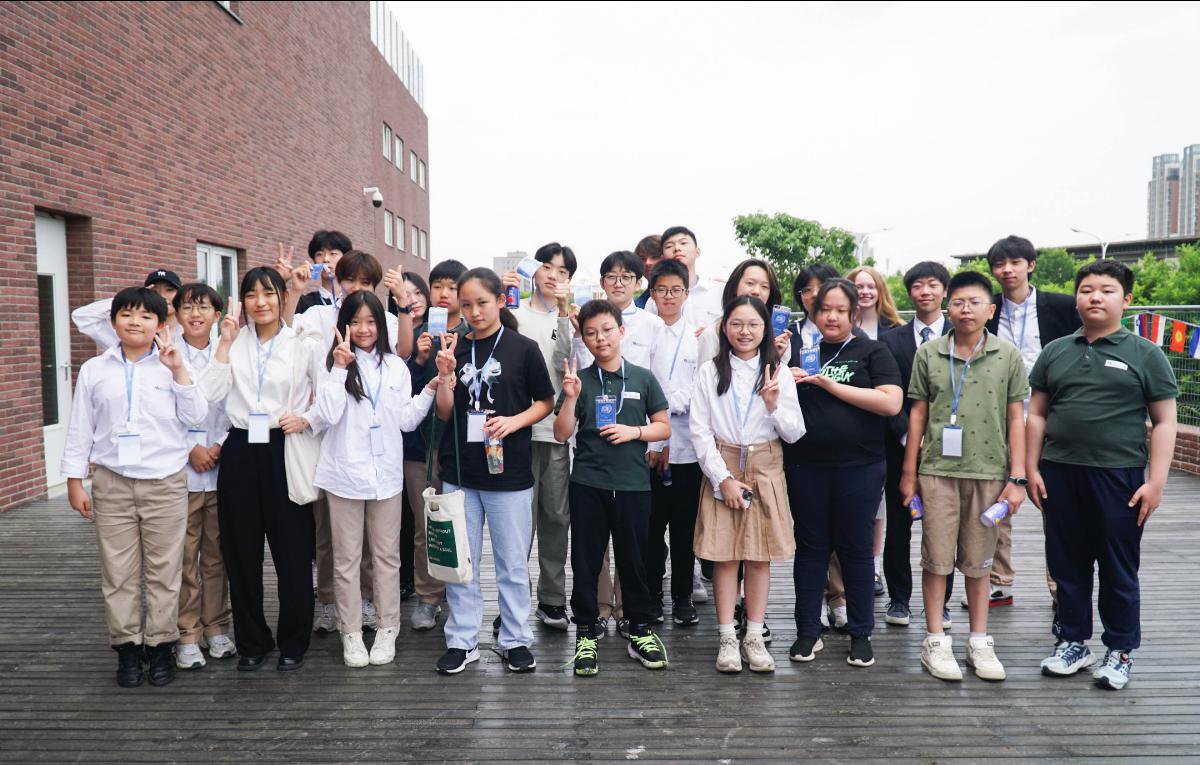 I was one of the chairs of the China's Atomic Energy Authority during the Junior Model United Nation conference. To be honest, the conference isn't progressing as smoothly as I had hoped. Everyone seems a bit lost, including us, since this is our first time hosting in this capacity. The delegates (or representatives) are rather calm and composed, not raising their voices but remaining quite calm and steady, perhaps a bit too much. They hesitate to take the lead and express their opinions, which is making it challenging to move the discussion forward. Some of them are looking around, hoping for someone else to take the opportunity, while others are simply sitting there, quietly observing the situation. It's almost as if they are waiting for something to happen, but not quite sure what that something is. As the chair, I'm trying my best to guide them and encourage them to participate more actively, but it's proving to be a difficult task. I hope that in the next session of the conference, they will find their confidence and start to engage more. For me as a chair, I believe there are several things that I can do to make the conference better. At the beginning of the conference, I can give a speech that aims to guide the students, to make sure they actually understand the process of the conference and provide them with a visual map of the process, instead of just a pure 1000-word guidebook.
I was one of the chairs of the China's Atomic Energy Authority during the Junior Model United Nation conference. To be honest, the conference isn't progressing as smoothly as I had hoped. Everyone seems a bit lost, including us, since this is our first time hosting in this capacity. The delegates (or representatives) are rather calm and composed, not raising their voices but remaining quite calm and steady, perhaps a bit too much. They hesitate to take the lead and express their opinions, which is making it challenging to move the discussion forward. Some of them are looking around, hoping for someone else to take the opportunity, while others are simply sitting there, quietly observing the situation. It's almost as if they are waiting for something to happen, but not quite sure what that something is. As the chair, I'm trying my best to guide them and encourage them to participate more actively, but it's proving to be a difficult task. I hope that in the next session of the conference, they will find their confidence and start to engage more. For me as a chair, I believe there are several things that I can do to make the conference better. At the beginning of the conference, I can give a speech that aims to guide the students, to make sure they actually understand the process of the conference and provide them with a visual map of the process, instead of just a pure 1000-word guidebook.
Emily, Y8 Student
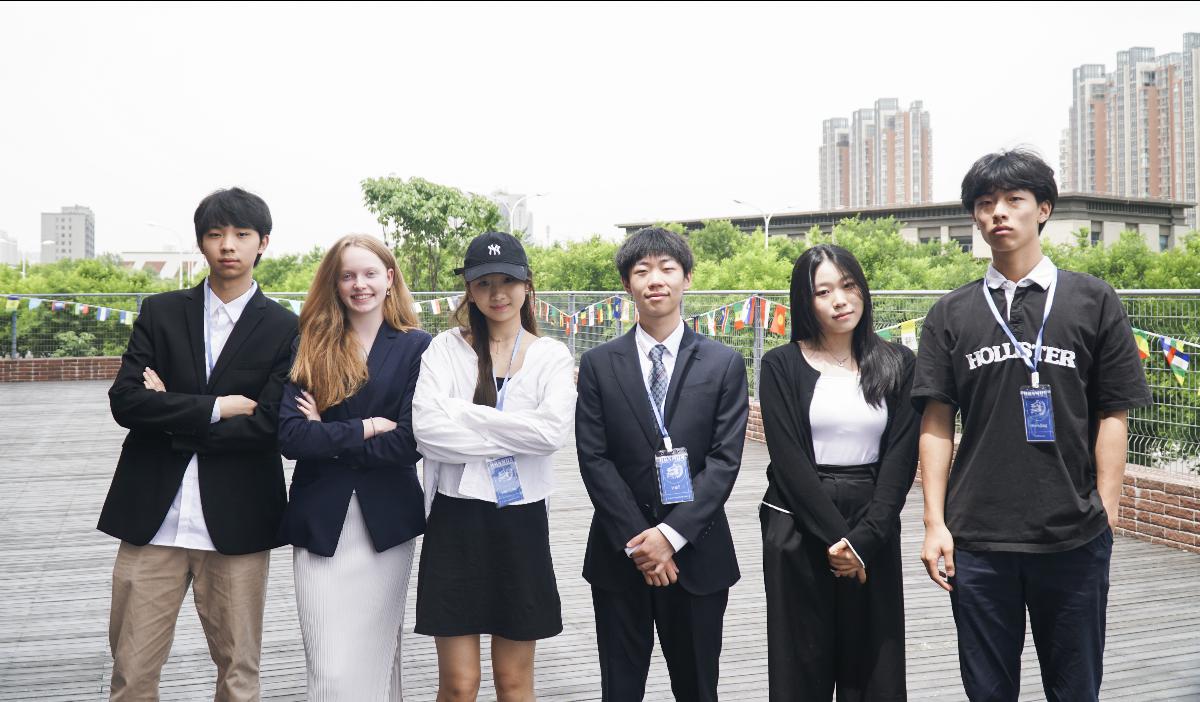 Take aways/reflection on the mock forum of United Nations Atomic Energy Agency
Take aways/reflection on the mock forum of United Nations Atomic Energy Agency
Through participating in the mock forum of United Nations Atomic Energy Agency, I have learned a lot of knowledge and skills, and also identify some areas for improvement.
Through self-study, I gain knowledge on the importance of international cooperation on nuclear waste handling, understand Guangdong province, my hometown’s nuclear plant and its safety issue, as well as the current status and prospective of low carbon or green energy development in Guangdong province as well as in China, it is really an interesting topic, learning, and knowledge sharing opportunity.
I learned the professional way to present my opinion in a formal, international forum. It helps to improve my communication skills, presentation skills, motivate me to do research and think critically and independently.
There are areas for improvement:
Although I have spent some time to do research on the topic and summarize my materials for presentation but I feel I can do more in-depth study so that I can have more to present and debate with other representatives, I can even spend some time to understand the materials of their presentation so that I can share my opinions. I also feel my vocabulary on the particular nuclear energy waste and green energy is insufficient, especially some particular words for those subjects.
Secondary School Baseball ECA - Supervisors: Ms. Alina Zheng & Mr. Ferdinand Els.
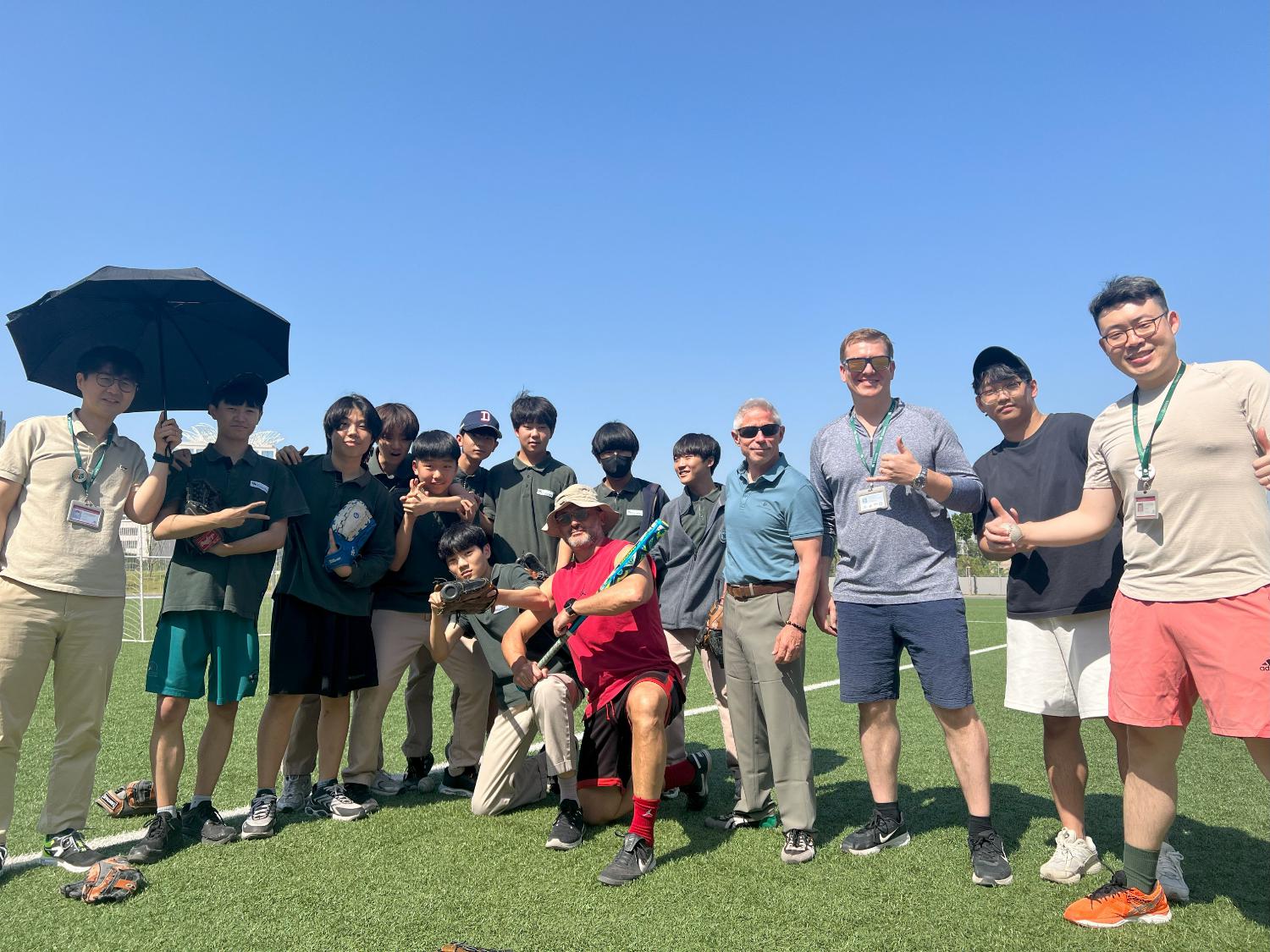 Jason & Kevin, Y11 students: We developed baseball into an exciting ECA activity in Hanova, which was initially unfamiliar to most students. With our team, we studied the fundamentals of baseball and practiced diligently throughout the second semester.
Jason & Kevin, Y11 students: We developed baseball into an exciting ECA activity in Hanova, which was initially unfamiliar to most students. With our team, we studied the fundamentals of baseball and practiced diligently throughout the second semester.
Our first baseball game on Wednesday, May 22, was an incredible experience for everyone involved. Our baseball team has come a long way, and we couldn't be more thrilled about our progress.
As the leaders, we are incredibly proud of our squad for showcasing our skills, teamwork, and dedication during the match against the teacher's team. It was a victory that demonstrated the hard work and practice we've put in over the season. We are excited to take on other school teams and compete at a higher level. This will not only challenge us but also provide us with an opportunity to demonstrate our sportsmanship, strategy, and unique chemistry as a team.
Let's aim to set a new benchmark of excellence that future players can look up to. Let's get out there and make it happen! Together, we've got this.
Year 5 Students share about their EOTC experiences:
Written by students & edited by Mr Daniel Angulo, Year 5 Teacher
The Hiking Quandary - written by Fiona Zhao, Y5 student
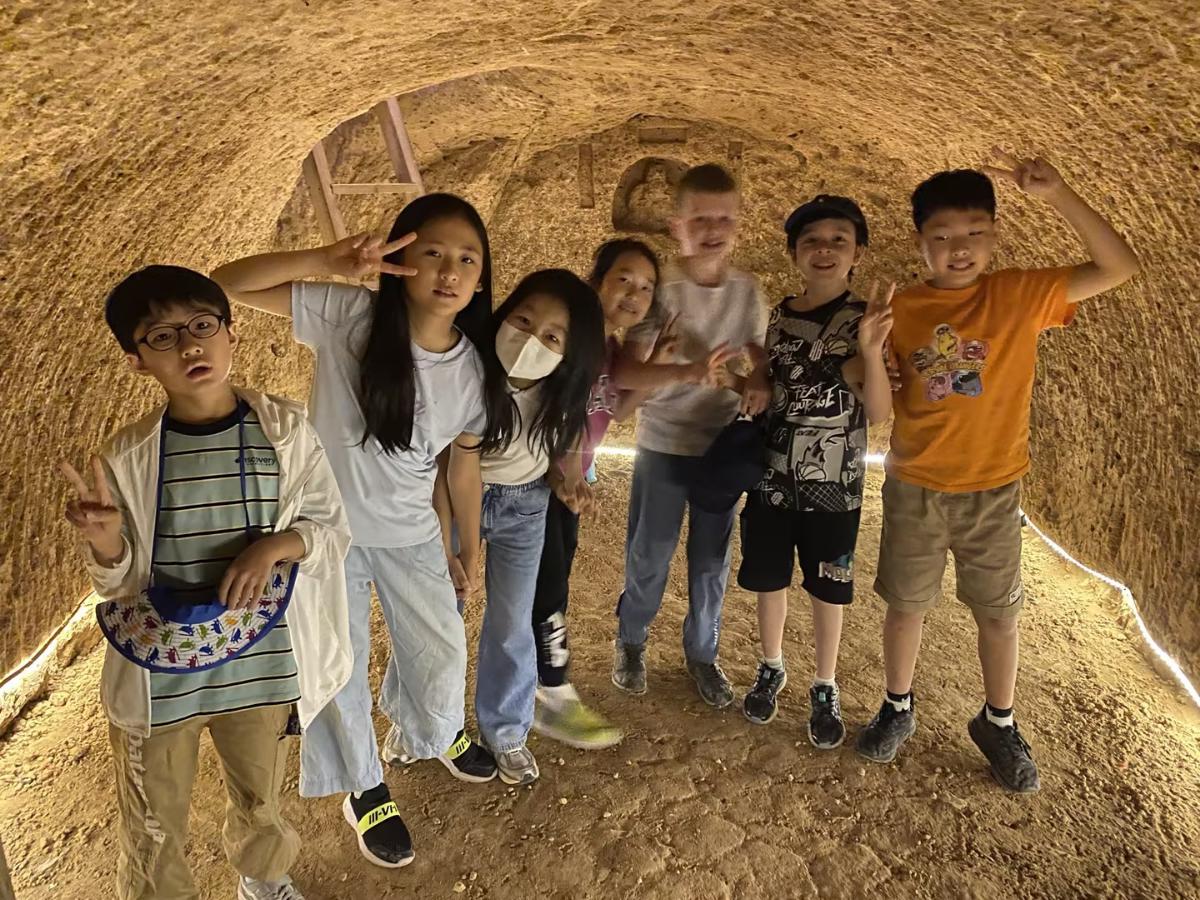 Last week, we started our EOTC getting on the Wild China bus at school. After our bus stopped in Weinan, we each got off the bus and we noticed that there were ducks and swans in a pond that was quite dirty. The weather was okay-ish. It was cloudy as well as sunny.
Last week, we started our EOTC getting on the Wild China bus at school. After our bus stopped in Weinan, we each got off the bus and we noticed that there were ducks and swans in a pond that was quite dirty. The weather was okay-ish. It was cloudy as well as sunny.
We first started walking in a village and then we got to the mountain. When we were walking up to the village, I spoke to Kivi about how easy this hike was. If only I knew how difficult the hike would get later on. At the start of the mountain, it was quite easy to walk on. We crossed a stream and we stepped over some boulders. But soon we found ourselves climbing up slopes and holding onto rocks for support. Then we stopped in the middle of the hike and we had to go back down due to safety reasons.
But we had a problem. We had to go down the mountain the same path that we came from. I was really scared and I started panicking. I remember Kivi acting as if she were walking on flat land, but she held my arm for 80% of the walk down. The mountain was very hard to climb down. We had to slide down rocks and boulders.
But then we all stayed close together and we slowly walked down, avoiding any holes or sharp things in the dirt. I was panicking a lot until I realised that Miss Tracy was behind me. And then I felt a lot better.
We finally managed to get out of the mountain, and I was shivering by the time we got to the bus. We headed straight for lunch and we were finally able to sit down and rest after the long hike.
Pottery Problem 5001 - written by Vlad Nemytov, Y5 student
The last activity that we did on our EOTC trip was pottery making. I enjoyed it very much. We got a tour of the place where we went to look at different types of clay, explained what porcelain (local way of pottery) is, visited a kiln (a place where the ancient locals dried their pottery) and finally went to the pottery making place. Once we got there and started, I started making a very pretty pot. But then I started over and over again because I didn’t like my creation.
I spent some time on my pot and then I accidentally turned the lever too much up and my pot started wiggling and broke. I stared at my broken pot and was very annoyed. I then looked at Mr.Charlie’s beautiful pot. Then I had an idea. I was going to make a plate like Mr.Charlie’s, but smaller and a bit flatter.
Then I finally started making my clay plate. I first made a pot. From there, I flattened it out and made it look like a plate.
We finished our pottery session, washed our hands, got on the bus and went to lunch. After lunch we got on the bus again and we finally went home.
The Waiting Problem - written by Edward He, Y5 student
Our Year (Y5) was going on an EOTC Camping trip. We were told to write about our experience of any problem we had and how we managed to solve that problem:
When Vlad and I sat down, we had to wait for the others to do the same so we waited and talked. Finally, everyone was settled down. But when I thought we were finally going to start driving, the guide started to talk. She told us about safety and about our trip and finally, she was finished. When we started to drive, Vlad and I started talking about how exciting the trip was going to be and all of a sudden, the topic changed to games and then (in what felt like ten minutes), we were there!
The next morning, I woke up at around 6:00 but Vlad was still asleep so I woke him up too. After we woke up, we had a quick snack and took turns changing in the tent. Then we packed up our tent and packed our things. After that, we went on the bus again and ate our breakfast. Then we went and did a farming program, an activity where you have to identify different herbs and plants, and a shadow puppet theatre.


